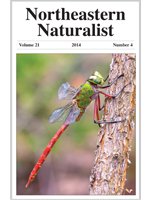Several structures can be used to estimate ages of Micropterus salmoides (Largemouth Bass) and Micropterus dolomieu (Smallmouth Bass). Otoliths are often employed for these black bass age determinations, but processing otoliths can be time consuming and requires an investment in training and equipment. Scales and dorsal spines can also be analyzed to measure age, but precision and accuracy problems have been documented. Use of opercles to estimate age in Largmouth and Smallmouth Bass has not been previously examined. Utilization of both otoliths and opercles requires sacrificing the fish, but opercles are easier to remove and process than otoliths. In our study, four readers estimated the ages of the fish using each of the four structures. Opercles had the lowest coefficient of variation (CV) for both species (Largemouth Bass = 6.31, Smallmouth Bass = 5.23), but underestimated the ages of Largemouth Bass older than nine and Smallmouth Bass older than six, relative to otoliths. Opercles proved easier to prepare and read, and the results showed lower age-bias, higher precision, higher among-reader agreement, and less reader bias than scales and dorsal spines.
How to translate text using browser tools
1 December 2014
Precision and Bias of using Opercles as Compared to Otoliths, Dorsal Spines, and Scales to Estimate Ages of Largemouth and Smallmouth Bass
V. Alex Sotola,
George A. Maynard,
Erin M. Hayes-Pontius,
Timothy B. Mihuc,
Mark H. Malchoff ,
J. Ellen Marsden
ACCESS THE FULL ARTICLE

Northeastern Naturalist
Vol. 21 • No. 4
December 2014
Vol. 21 • No. 4
December 2014




